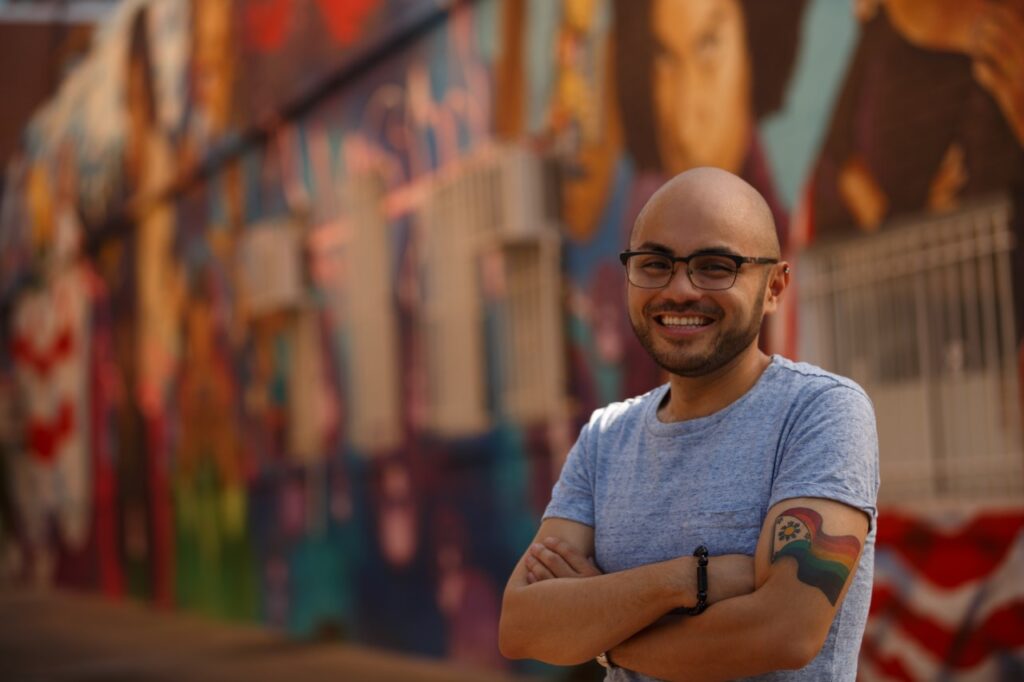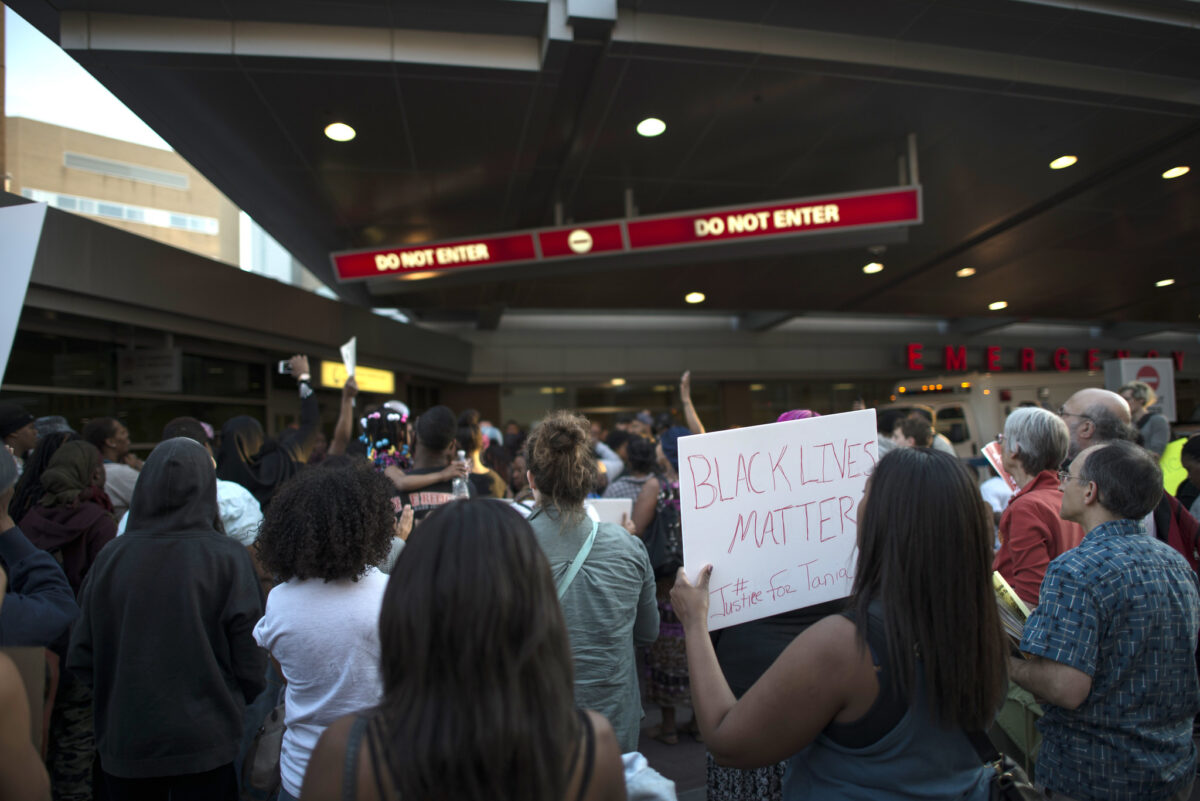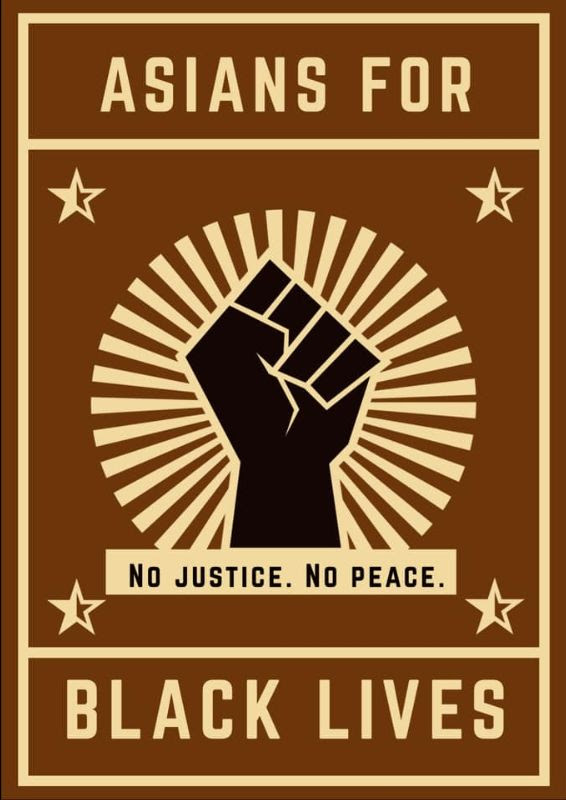By Guest Contributor: Gregory A. Cendana
Working class people, particularly femmes, queers and non-binary folks, impacted disproportionately by a global pandemic and health crisis are leading the largest uprisings in United States history in support of the Black Lives Matter movement. Our country is in a moment of reckoning as it navigates two viruses: COVID-19 and racism. A pandemic within an endemic.
Through the turmoil, Black organizers are helping us reimagine safety in our communities without police, and a world that centers humanity and joy — not profits, corporations and property. Being raised in a union household and after spending a decade of my life working with organizations advancing worker, immigrant and civil rights, I learned these values were also shared by many rank and file workers and more and more people across the country.
From being a part of the Labor Commission on Racial and Economic Justice to serving as the immediate past Executive Director for the Asian Pacific American Labor Alliance, my experience is grounded in years of organizing with working people across the country and addressing anti-Black racism and anti-Blackness in my family and the broader Asian American community.
Union elected officers are putting up signs or making statements that they want to do their part to combat racism, but frankly have not had the political will to move beyond a commission, report or one off diversity training. In order to make systemic change, labor unions from internationals to the locals need to leverage their platform and resources to advance the demands of the Movement for Black Lives, and aligned organizations.
In order to make systemic change, labor unions from internationals to the locals need to leverage their platform and resources to advance the demands of the Movement for Black Lives, and aligned organizations.
Following the murder of Michael Brown in 2014, AFL-CIO President Richard Trumka gave a speech that included the phrase, “Our brother killed our sister’s son.” He was referring to Lesley McSpadden, Michael Brown’s mother, a grocery store worker and union member who tragically lost her son to Darren Wilson, a police officer and also a union member. At the time, the federation made clear they were willing to protect and stand with one member, but not another.
Nearly six years later, the AFL-CIO is faced with similar questions and now, without the Civil, Human and Women’s Rights or Community Engagement departments or many of the young, people of color that worked in the headquarters. I know because I was one of them.
If a union leader says Black Lives Matter, I want to know: Have you demanded the shift of resources from policing to education, health, housing, jobs and protecting the environment? Have you made significant contributions to local Black led and accountable organizations? Will you denounce police unions and the white male dominant culture that permeates the top levels of your senior management and executive boards?
If a union leader says Black Lives Matter, I want to know: Have you demanded the shift of resources from policing to education, health, housing, jobs and protecting the environment? Have you made significant contributions to local Black led and accountable organizations? Will you denounce police unions and the white male dominant culture that permeates the top levels of your senior management and executive boards?
There are some unions who have taken bold stances. The Writer’s Guild of America East, a member of the 55 member union coalition, was the first to call on the AFL-CIO to expel the International Union of Police Associations. The Service Employees International Union passed a resolution which includes a call to “divest from and demilitarize the police and invest in and build Black communities.” Furthermore, a coalition of unions are supporting the #StrikeForBlackLives on this coming Monday, July 20 which they are calling “a day of reckoning”.
At the local level, Transport Workers Union Local 100 defied the New York Police Department and refused to transport arrested protesters. The Minneapolis Federation of Teachers joined the Minneapolis Public School Board to call on the district to cut ties with the police, and the Minneapolis city council shared they had a veto proof majority to disband the police department. In Los Angeles, the American Federation of State, County and Municipal Employees Local 3299, Service Employees International Union Locals 99 and 2015, UNITE-HERE Local 11 and United Teachers of Los Angeles called for divestment from police at a joint press conference . In Washington State, The Martin Luther King County Labor Council voted] to expel the Seattle Police Officers Guild.
Overall, labor unions in this country are at a crossroads. On one hand, they have an opportunity to seize the moment, provide the leadership that working people deserve and usher in a new generation of activists who will see unions as stalwarts for racial, economic and social justice. Or, they will fall flat — like the many politicians who are noticeably quiet or have at best given us performative solidarity — and turn millions of people away from the promise of the future of labor.
Locals, central labor councils and state federations should build the groundswell of support to bring their national and international leaders to action. Time will only tell if the change we need to see will come to fruition.
Locals, central labor councils and state federations should build the groundswell of support to bring their national and international leaders to action. Time will only tell if the change we need to see will come to fruition. I hope this time, the American Labor Movement finds themselves on the action — and right — side of history.

Gregory A. Cendana is the President and Co-Founder of Can’t Stop! Won’t Stop! Consulting and Co-Founder of The People’s Collective for Justice and Liberation. He is immediate past executive director of the Asian Pacific American Labor Alliance, former general board member of the AFL-CIO and served as chair of the Labor Coalition for Community Action. Follow him on Twitter at @gregorycendana.
Learn more about Reappropriate’s guest writing program and submit your work here.


